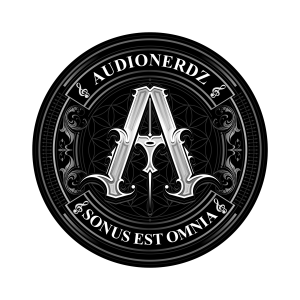
Copyright School for Djs and Djanes
Learn Your Rights and Responsibilities
DJs and Their Copyright Responsibilities: No Monetization Without Permission
DJs are often at the forefront of music culture, but when it comes to monetizing music—whether through live performances, remixes, or online mixes—it’s essential to understand that copyright law does not grant you the automatic right to use or profit from another artist’s work without permission. In fact, monetizing copyrighted music without explicit authorization from the copyright holder is illegal.
You Have No Right to Monetize Without Permission
In copyright law, the owner of the work—whether it’s the artist, record label, or publisher—holds the exclusive rights to that work. This includes the right to reproduce, distribute, and publicly perform the work. As a DJ, you cannot legally monetize or profit from any track without obtaining the appropriate license or permission.
For example, if you are:
- DJing at a club or festival: While the venue may have a public performance license with a Performing Rights Organization (PRO), this license typically covers the venue, not individual DJs. This means that you still need permission from the copyright holder to perform or stream specific tracks.
- Creating a live mix or DJ set for online distribution (e.g., on YouTube, SoundCloud, or a podcast): Unless you have explicit permission from the copyright holders (the original artists, labels, or publishers) or the tracks are properly licensed for such use, you cannot legally monetize this content. Platforms like YouTube use Content ID to detect unlicensed music and may block or demonetize your videos automatically if they detect copyrighted material.
Sampling and Remixing: Still Not Your Property
Many DJs work with samples or create remixes of existing tracks. However, in both cases, copyright law treats these as derivative works, which require permission from the original copyright holder.
If you sample a track or remix a song, the original creator(s) and copyright holder(s) of that work retain their rights over it. You must obtain clearance or licensing to use the original track or elements of it. Without that explicit permission, you’re infringing on their copyright and could be subject to legal action, including takedowns and potential financial penalties.
The Importance of Copyright Licenses
The proper way to legally DJ and profit from your performances or mixes is to ensure you have obtained the necessary licenses. There are several ways to do this:
- Public Performance License: Many PROs like ASCAP, BMI, and PRS for Music provide licenses for public performances. However, these licenses typically only apply to venues, not individual DJs. DJs must check with the venue and confirm if they have the required licenses to cover all the tracks being played. If not, the DJ may need to secure a personal license.
- Mechanical Licenses: For DJs releasing mixes or compilations containing original tracks, you must obtain a mechanical license from the copyright holder or a licensing agency. This grants you the right to reproduce and distribute the tracks.
- Sync Licenses: If you’re using a track in a video, like for a promo or live stream, you need a sync license to legally monetize it. This license allows you to synchronize the music with the visuals and distribute it for profit.
Why Ignoring Copyright Laws Can Lead to Legal Trouble
The consequences of failing to respect copyright law can be severe. DJs who illegally monetize music without obtaining the proper licenses can face:
- Takedown notices: Platforms like YouTube and SoundCloud may remove your mixes, sets, or videos for violating copyright.
- Monetary penalties: If you’re caught using music without proper clearance, you may be required to pay statutory damages, which can range from thousands to millions of dollars, depending on the severity of the infringement.
- Reputational damage: In the tight-knit electronic music community, having a history of copyright violations can significantly harm a DJ’s reputation, making it harder to collaborate with other artists, labels, and venues.
Key Takeaways for DJs:
- Don’t assume you have the right to play or remix any track without proper licenses or permissions.
- You cannot monetize any track, remix, or DJ set without explicit permission from the copyright holder.
- Always seek clearance before using someone else’s music, whether it’s for a live performance, online mix, or recorded content.
- Respect copyright law—it’s there to protect both you and the original creators.
By following these guidelines and ensuring you are in full compliance with copyright laws, you can protect both your work and the work of the original artists, fostering a sustainable and fair music ecosystem.
